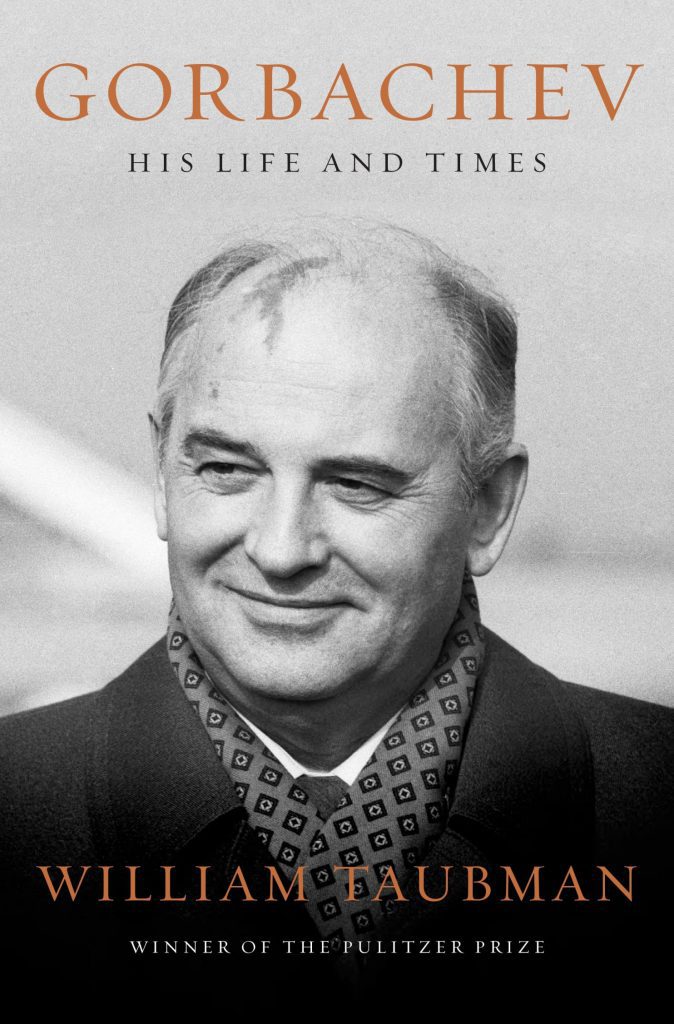Interview with 2018 NBCC Biography Award Finalist William Taubman
For the past four years, the National Book Critics Circle has partnered with The New School’s MFA Creative Writing program, allowing the students to interview each of the NBCC Awards Finalists. In addition to building excitement for the Awards Finalist Reading and Ceremony held at the New School March 14th-15th, these interviews have built an intergenerational bridge between the writers of today and tomorrow.
This year, as part of the ongoing collaboration, and in support of the NBCC’s conversation about reading, criticism, and literature that extends from the local to the national, Brooklyn Magazine will publish and promote the interviews between NBCC Finalists and the current students of The New School.

In 2003, William Taubman released Khrushchev (W.W. Norton), a book over 10 years in the making. It went on to win the Pulitzer Prize and the National Book Critics Circle award amongst others.
Now, 15 years later, he is nominated yet again for an NBCC award for a masterfully well-researched and beautifully written biography on one of the most controversial Russian leaders—Mikhail Gorbachev: His Life and Times (W.W. Norton).
It took you over 11 years to write this book but it’s your first interview with Gorbachev that intrigues me. When you wrote to the Russian officials, they told you that Gorbachev would invite you if he felt like it. Not only did you get him to invite you, but you managed seven other personal interviews. What was that first meeting like and how did you prepare for it?
Well first of all, there were three of us. My wife, Jane Taubman, is a professor of Russian language, literature and film at Amherst. She is now retired but she was present at all of the interviews. We both speak good Russian, but hers is even better than mine. She likes to joke that she has a way of charming Russians over the age of 75. So she was a great help.
But it’s quite true that we were told that we would have one interview with him and then he would make up his mind as to whether we would have more. I had two tactics or strategies for this interview. One was to begin almost every question by quoting something that he had said or written. I did this partly in order to prove that I had done my homework but also in the thought that it might lead him to say things he had not said before. The other strategy was to begin with his birth, his grandparents and his parents. I figured that we couldn’t possibly, in one interview, get from 1931 up to the 1980s and so if he wanted us to cover his whole life, we would have to meet again.
The impression he made was of a remarkably warm, informal and natural person with a sense of humor. He did not ask us to provide him with the questions in advance. He did not insist on having his own interpreter present. Very relaxed conversation, very informative, and [the first interview] did lead to several more.
It is wonderful that he was able to meet you on such unofficial and friendly terms right at the beginning. That says a lot about him as a person. I assume you are eagerly awaiting his thoughts on your book, once it is translated to Russian.
Yes, I certainly am. I would be very eager to hear what he thinks. I heard from the director of his foundation, after I sent him a copy, that he “thanks me from the heart” but that, you know, he doesn’t read English. So I will have to wait to hear his impressions. I believe the Russian edition is coming out relatively soon.
“Gorbachev is hard to understand”—these are Gorbachev’s own words with which you start your book. Grachev called him a “genetic error of the system.” As readers, we enter the book with a morass of questions, the biggest of which is “How did he do so much so fast?” Do you think his father might have been right when he told him that he was growing too fast for his own good? Or was it a combination of that and the fact that his country was just not ready for him?
In the beginning I think Gorbachev thought it was a virtue to move slowly and to let the situation evolve. He thought the primordial sin of Bolshevism was to move too fast in trying to carry out a kind of political economical earthquake. Gorbachev also thinks that Russian history is full of revolutionaries who were in too much of a hurry to change the world and too much blood was shed in an effort to do so. So he always thought of himself, as “making a revolution by evolutionary means.”
As he got into trouble in the initial period after he was ousted, he decided he should move faster. That he should have broken with the communist party sooner. He should have given more power to the republics. But now, looking back 25 to 30 years later, he is on record, saying he thinks it may take decades to democratize Russia. And in one quote several years ago, he said it might take the whole 21st century. That certainly sounds as if he has come around the view that he moved too fast.
In the book you mention that he feels the Russians may need a period in the desert like the Jews did with Moses. How far does he think they have come? What kind of a leader does he envision will help Russia today?
I think the Jews and Moses parallel has to do with Russia needing time in the desert to get used to being a democratic country. It cannot emerge from slavery overnight and become the kind of county he wants it to be. But as to what happens now for the rest of the 21st century is hard to say.
I know in 2011, when massive demonstrations broke out in Moscow, St. Petersburg and other cities, when Putin seemed to be rigging the elections, Gorbachev sounded euphoric as if, maybe, democraticization wouldn’t take so long after all. I think he tried to brace himself to the fact that it may take decades, but he is always susceptible to the hope that it could happen sooner.
When Gorbachev’s wife Raisa was on her death bed and Gorbachev was taking care of her, he brought her a newspaper one day to read her a surprisingly positive article that had been written about them. I will never forget her response. She said, “It turns out you have to die to be understood.” Do you think the Russians will make the same mistake with Gorbachev?
That is a very good question. In the short run, the question is: how will [Russians] react to his death? If they follow the pattern which they did when Raisa died, they will be very moved by his death and much more sympathetic towards him after he is gone.
In the longer run, it won’t be so much a question of how they are reacting in the moment to his passing, but it will be: how will he look 40 or 50 years from now? It depends which way Russia goes. The public opinion polls already seem to indicate that the young people are particularly likely to admire him. Those who have been able to build lives for themselves realize that he opened the door that made that possible. Whereas a lot of older people who suffered through the bad times of the late 80s and the 90s still tend to blame him. So I think in the long run, if Russia ends up on a Democratic path, they may look back at him as one of the founders.
On the other hand, if it continues to suffer from political repression and occasional economic disasters, they may look back and say he is the one, along with Yeltsin, who started the bad times.
When Gorbachev won the Nobel Peace Prize, he used the money from the prize to buy computers for a newspaper called Novaya Gazeta which is still in circulation. Do the Russian people associate him with that? Has that helped at all in reviving their opinion about him?
He is a co-owner of [Novaya Gazeta]. And as far as I know, it is one of the few if not the only liberal newspaper. The one most likely, these days, to tell the truth. It has a courageous editor named Sergey Kozheurov and I am sure that liberal minded Russians read it and appreciate it and probably know that Gorbachev is associated with it. But I don’t know its circulation. I suspect it’s fairly low. It’s certainly not in the tens of millions or even millions.
Let us talk about Raisa Gorbachev. She was perhaps his strongest advocate. She supported him as an adviser, a philosopher and a friend. I wonder if he would have turned out the way he did if not for her?
You are quite right. She was strong and in some ways stronger than he, but she was also vulnerable. This woman was Soviet Russia’s first lady—smart, stylish and sophisticated. Eager to appear with him in public, and to advise him on all matters.
In the end it turns out that she was temperamentally not suited for that role. As the country got worse and worse, and as Gorbachev came under more and more criticism, that became more and more painful for her. I think that helps to explain Gorbachev’s really poignant remark after she died, when he says, “I did her in.”
Those pages in the book are difficult to read without getting emotional. Especially when they are followed with an image of Gorbachev, face in his hands, crying. It was just the most heart-breaking portion of the book.
I am smiling, only because I was hoping to convey just that.
You might also like 


























